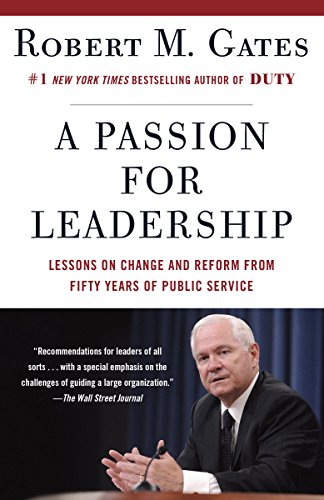“Rank does not confer privilege or give power. It imposes responsibility.”
Peter F. Drucker[i]
Last night in class, a student asked about a difficult situation. We were talking about leading people properly, and one student said that while she thought what we were talking about was great, she was not sure how practical it was. Then, she told us about her problem.
For the sake of anonymity, we will call her Jen. Jen is a middle manager and she recently uncovered a number of significant organizational problems. She had scheduled an appointment with her boss for the next day. She felt that she had to address these issues with him as soon as possible, but she was not sure how to go about it. Because her situation was relevant to leadership, we devoted some time to talking about it in class.
Without going into the details, you just need to know that it would be a Crucial Conversation.
 Grenny, McMillan, Switzler, Covey & Roppé define crucial conversations as “A discussion between two or more people where (1) stakes are high, (2) opinions vary, and (3) emotions run strong.”[ii]
Grenny, McMillan, Switzler, Covey & Roppé define crucial conversations as “A discussion between two or more people where (1) stakes are high, (2) opinions vary, and (3) emotions run strong.”[ii]
In Jen’s case, multiple issues had surfaced so she reluctantly made the appointment because they had to be addressed. Suffice it to say that it was a political minefield, and she was not looking forward to the conversation. Her classmates were wonderful as they offered support. They came to the following conclusions that I will share below.
What You Can Control
First, they determined whether it was a conversation that she needed to have. It was. To avoid the conversation would be to fail as a leader. Jen was ethically (and perhaps even legally) obligated. Her people were depending on her, and she did not want to let them down.
I sympathized with Jen because I have had difficult conversations too. On one occasion, I had to tell an applicant that she could not enroll in our graduate program because the college she attended (where she likely spent $50,000 or more to get a degree) was not accredited.
On other occasions, I have had to tell students that failed their final class that they were expelled and that they would not be earning an MBA. Our graduate program has a rule that three Cs or one F automatically leads to expulsion from the program. In some cases, family and friends had come to local hotels to see these students graduate. After two years of hard work, this was awkward, embarrassing, and painful.
Those were tough conversations, but in each situation, I was the one in power. Jen’s situation was more complicated. She was trying to figure out how to approach the boss about these situations knowing that her boss held all of the power. He could act, or he could do nothing, or he might be vindictive and demote her or fire her.
In A  Pass
Pass ion for Leadership, Robert Gates quoted Samuel Goldwyn’s quip, “I don’t want any yes-men around me. I want everyone to tell me the truth, even if it costs them their job.”[iii] A good boss wants the truth, but to get it, his employee must know that it is safe to bring him bad news.
ion for Leadership, Robert Gates quoted Samuel Goldwyn’s quip, “I don’t want any yes-men around me. I want everyone to tell me the truth, even if it costs them their job.”[iii] A good boss wants the truth, but to get it, his employee must know that it is safe to bring him bad news.
Often we do not want to bring bad news to the boss because historically, those in power have had the tendency to “punish the messenger.” In Influence: Science and Practice, Robert Cialdini explained that in ancient Persia, imperial messengers were honored if they brought good news about a battle to the king, but they were slain if they brought bad news.[iv] They were not even responsible for what happened—they were just the messenger, but it did not matter. This was Jen’s predicament.
Grenny, McMillan, Switzler, Covey & Roppé explained that what makes a difficult conversation a crucial conversation, “not simply challenging, frustrating, frightening, or annoying—is that the results could have a huge impact on the quality of your life. In each case, some element of your daily routine could be altered for better or worse.”[v]
Yet, you must be able to speak the truth. An environment where the truth cannot be spoken will inevitably decline. Truth protects and corrects when things go wrong.
Since she felt that she had to have the crucial conversation, the question then became how to approach her boss—how to speak truth to power. Her classmates agreed that she needed to address the serious situation. They encouraged her to focus on her attitude as she approached him. While she was frustrated by what was happening, she needed to be sure not to use it as an opportunity to vent. She needed to ensure that her attitude was one of concern. After all, she was just trying to do right by her people, her organization, and her boss.
It is hard to be angry toward someone who is trying to serve and protect you. Her classmates argued that her concerns would be well received if the boss recognized this. As the proverb states, “Wounds from a friend can be trusted” (Proverbs 27:6a).
What You Can’t Control
In spite of the great advice that her classmates gave her, there was no guarantee that her boss would be receptive to her concerns. You cannot control other people. You cannot control their perceptions. You cannot control their reactions, and you cannot control the final results.
Jen is not responsible for her boss’s reaction. She is only responsible for her actions. To that end, while she wants to present her case in as palatable a form possible, ultimately, the end result is out of her control.
Leading Up is a Process
One more thing is important here. Jen needs to understand that this may be a process. In an ideal world, reason reigns supreme, the just always triumph, and right prevails in the end. But we do not live in such a world. Our world is fallen, and sometimes things do not go as planned. If she makes a dent, it may take time to unwind the issues.
Whatever happens, I am proud of Jen. She identified the issues that were problems before they overwhelmed her. That is good management. And, she is willing to take a risk to support and defend her people. That is good leadership.
Have you ever been caught in this type of situation? If so, what did you do? If you are in that place in the future, what will you do?
-Darin Gerdes
[i] Drucker, P. F., & Kirsch, S.L. (1990, April 23). The best book on management ever: Peter Drucker argues that his friend, former GM chairman Alfred Sloan, wrote it 26 years ago. Among Sloan’s timeless tips: Real leaders are swayed by facts, not personalities. Fortune. Retrieved from http://archive.fortune.com/magazines/fortune/fortune_archive/1990/04/23/73427/index.htm
[ii] Patterson, K., Grenny, J., McMillan, R., Switzler, A., Covey, S. R., & Roppé, L. (2011). Crucial conversations. Tools for talking when stakes are high. New York: McGraw-Hill.
[iii] Gates, R. M. (2016). A passion for leadership: Lessons on change and reform from fifty years of public service. (p. 119).
[iv] Cialdini, R. B. (2009). Influence: Science and practice. Boston: Pearson Education.
[v] Patterson, K., Grenny, J., McMillan, R., Switzler, A., Covey, S. R., & Roppé, L. (2011). Crucial conversations. Tools for talking when stakes are high. New York: McGraw-Hill.
______________

Dr. Darin Gerdes is an Associate Professor of management in the School of Business at Charleston Southern University. All ideas expressed on www.daringerdes.com are his own.
This post was originally created for Great Business Networking (GBN), a networking organization for business professionals where Dr. Gerdes is the Director of Education.
______________
